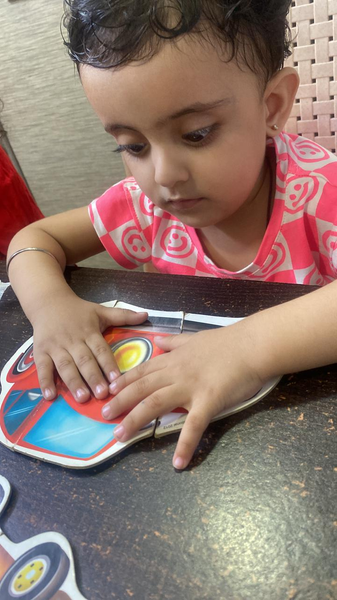
Little Wings
"The Importance of Building Motor Skills in Early Childhood Education"
Motor skills are an integral part of early childhood development. At the initial stages of exploring their surroundings, infants have to depend on motor skills to interact with the world. Gross motor development as well as fine motor coordination is important for a growing child to prosper and thrive physically, emotionally, and cognitively. Moreover, early childhood education lays even more pressure on fostering these abilities, giving a firm seat to learning, activity, and self-reliance.
Motor skills are the ability to control and coordinate movements. They broadly fall into two categories, that include gross motor skills and fine motor skills. Gross motor development involves bigger movements such as walking, running, and jumping, whereas fine motor coordination emphasizes smaller, complex movements for example, writing, drawing, and handling small objects. Both types of abilities are equally important and complementary to one another as children grow.
Gross motor development is one of the most crucial aspects during these formative years as it helps children build strength, coordination, and balance. Gross motor skills include crawling, walking, running, and playing with large objects. All these basic movements give way to further learning and help a child develop physically, thus boosting their self-confidence. Outdoor play, including climbing, running, and playing sports, can improve gross motor skills while helping children gain social skills.
Similarly, fine motor skills are required for tasks that demand precision and control. Important activities in daily living and independence include fine motor activities such as drawing or colouring, fastening buttons on a shirt, and the use of all kinds of utensils. Fine motor coordination aids the cognitive development of a child as it requires them to attend to, plan, and then to carry out an activity. These abilities are important for school success—particularly with regard to such skills as handwriting, cutting with scissors, and solving puzzles.
Gross and fine motor skills are interrelated, and encouragement of these skills in early childhood equips a child to handle his world more effectively. Support of these skills can be done by the parents and educators by organizing structured activities and free play. Such actions as building blocks or arts and crafts will clearly enhance fine motor coordination, whereas playing outside or bike riding will firm gross motor skills.
In general, motor skills play the critical role in the development of a child during early childhood. Parents and educators can help the child become a proficient individual with gross and fine motor coordination. With both, the children develop strong foundations to achieve immense success in academic as well as life pursuits, thus giving them the tools to become independent and sure of themselves as learners.
